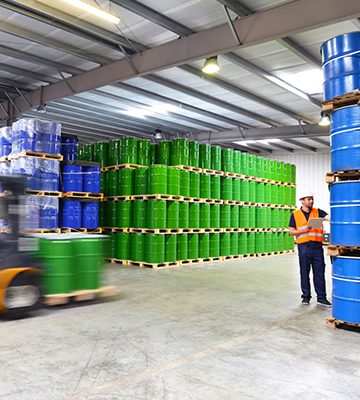Quila Energy - Revolutionary Oil and Gas Services
-
Call Us Today
(800) 912-5059
-
Working Hours
Mon - Fri: 9 am to 6 pm
-
190 McKinney Ave,
Texas, 75201

03
AugSometimes it takes a collapse of the system to realize the flaws lying dormant within it. The coronavirus, which causes the disease known as COVID-19, hasn’t exactly collapsed the global supply chain, but ripples from the outbreak are sure to affect wide swaths of mainstream commercial activity.”The Worldwide Business Impact of the Coronavirus,” recently highlighted a few startling statistics: An alarming 938 of the Fortune 1000 companies had one or more tier-two suppliers in impacted regions in China. More than 90% of all companies globally with tier-one (direct) suppliers in impacted regions were headquartered in the U.S. Coming in second was Canada, with 7.5%.
While it’s typically wise to not concentrate too much manufacturing in one country or region, taking that simple precaution won’t automatically insulate you in today’s economy, cautions Harry Broadman, a managing director at Berkeley Research Group and the chair of the firm’s emerging markets practice. Broadman, who was chief of staff for the President’s Council of Economic Advisers under President George H.W. Bush and subsequently served as assistant United States trade representative under President Bill Clinton, describes an intricate matrix of commercial relationships in today’s supply chains.


New Innovation With Workforce
Better Sharing State-of-the-Art Facilities & Equipments For Building Refine Energy Unit.
Our organizational culture’s basis establishes high expectations for both delivery and performance outcomes accomplished via innovation and customer focus. We concentrate on “how” we do our work as much as the results of “what” we do
Almost nine years ago to the day, Japan’s Fukushima region was hit by a magnitude 9.0-earthquake and subsequent tsunami. Not only did the natural disaster cause three nuclear meltdowns at a nuclear power plant, it effectively took offline production facilities that reportedly produced 22% of all 300-millimeter silicon wafers, a vital component in semiconductors, globally. On top of that, as much as 60% of certain necessary auto parts were made in Fukushima. Although the coronavirus is a different beast entirely, it is an ugly surprise from Mother Nature forcing mainstays of the global economy to reexamine their risk tolerances and supply chain dependencies. For Broadman, the fact that the coronavirus isn’t just hitting some concentrated region is what makes it such a dynamic threat. “The coronavirus is something that knows no borders and is far more diversified than any supply chain. That’s why you’re seeing pretty pronounced effects reverberating,” he says.

Leave A Comment